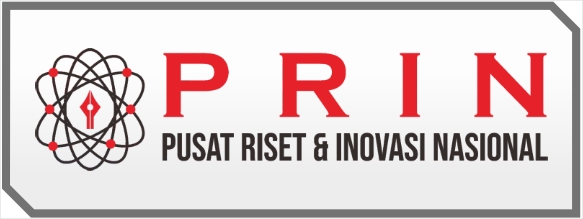The Effect Of Locus Of Control, Budget Emphasis and Budget Participation On Information Asymmetry and Its Impact On Budgetary Slack
DOI:
https://doi.org/10.55606/ijemr.v3i1.191Keywords:
Locus of Control, Budget Pressure, Budget Participation, Budgetary slack, Information AsymmetryAbstract
This research aims to determine the influence of locus of control, budget emphasis and budget participation on the budgetary slack with information asymmetry as an intervening variable in the Regional Apparatus Organization (OPD) of Kerinci Regency. The population in this study includes all Regional Regional Apparatus Organization (OPD) in Kerinci Regency, totaling 42 OPD with respondents taken namely the Head of OPD, OPD Secretary, Finance Section and Program Planning Section. The research sample was selected using saturated sampling, namely a sampling technique using the entire population as a research sample consisting of 168 respondents. This research method uses quantitative methods. This research uses primary data obtained through questionnaires distributed to respondents. The research results show that locus of control has a negative effect on the budgetary slack, while budget emphasis and budget participation have a positive effect on the budgetary slack. locus of control and budget emphasis have a positive effect on information asymmetry, while budget participation has a negative effect on information asymmetry. Information asymmetry is able to mediate the influence of locus of control, budget emphasis and budget participation on the budgetary slack.
References
Anggraini, DT, Salsabila, ZA, & Chairina, SW (2023). The Determinants Of Budgetary Slack. PETA Journal, 8(1), 46–66.
Baiman, S., & Evans, J. H. (1983). Pre-decision information and participative management control systems. Journal of Accounting Research, 371-395.
Cooper, Donald R., Pamela S. Schindler (2017), Business Research Methods, Edition 12, Volume 1, Translation by Rahma Wijayanti and Gina Gania, Jakarta: Salemba Empat.
Fitriyana, MM (2020). The Influence of Budget Participation, Information Asymmetry, Budget Emphasis and Locus of Control on Budgetary Slack (Study of Village Government in Wedi District) (Doctoral dissertation, Widya Dharma University).
Ghozali, Imam and Hengky Latan (2015). Partial Least Squares Engineering Concepts and Applications with the Smart PLS 3.0 Program. Semarang: Diponegoro University Semarang.
Government Regulation (PP) no. 71 of 2010. Government Accounting Standards.
Hair, J.F., Page, M., & Brunsveld, N. (2020). Essentials of Business Research Methods. New York: Taylor & Francis Group.
Indriantoro, Nur and Supomo, Bambang. (2018). Business Research Methodology. Yogyakarta: Andi Offset, CV.
Jensen, M. C., & Meckling, W. H. (1976). Theory Of The Firm Managerial Behavior, Agency Cost And Ownership Structure. Journal of financial economics, 3, 305–360.
Lubis, AI (2017). Behavioral Accounting: Multiparadigm Accounting (3rd ed.). Salemba Four.
Panjaitan, FB, Margaret, R., & Carolina, Y. (2019). Factors that Influence Budgetary Slack in the Regional Financial and Asset Management Service in West Java Province. Journal of Accounting, Finance, Taxation, and Auditing (JAFTA), 1(1), 75-90.
Pradita, E.O., & Haryanto, H. (2017). The Effect of Budget Participation on Budgetary slack with Information Asymmetry as an Intervening Variable (Empirical Study on OPD in the Former Kedu Residency). Diponegoro Journal of Accounting, 6(3), 420-434.
Pratiwi, CA (2023). The Influence of Budget Participation, Budget Emphasis, Information Asymmetry, Organizational Commitment, Clarity of Budget Targets, and Environmental Uncertainty on Budgetary Slack (Empirical Study of Regional Apparatus Organizations in Jepara Regency). Indonesian Journal of Public Accounting, 1(1), 35-44.
Putra, IGED, & Mintoyuwono, D. (2017). The Influence of Budget Participation, Budget Emphasis, and Organizational Commitment on Budgetary slack in Government Sub-Departments in DKI Jakarta. Equities, 20(2), 59-74.
Putra, W. E., Orinaldi, M., & Tan, S. (2017). Pengaruh Partisipasi Anggaran Dan Motivasi Terhadap Kesenjangan Anggaran Dengan Good Governance Sebagai Variabel Pemoderasi Pada Kepala OPD Provinsi Jambi. Jurnal Akuntansi & Keuangan Unja, 2(3), 29-44.
Putra, W. E., Kusuma, I. lia., dan Yuliusman. (2023). Model Peningkatan Nilai Perusahaan Syariah : Pendekatan CSR dan Tax Avoidance. Sketsa Media.
Sinaldi, AH, Riduwan, A., & Priyadi, MP (2023). The Effect Of Moral Equity, Locus Of Control, Environmental Uncertainty, Organizational Commitment, Reward, And Motivation On Budgetary Slack: Participatory Budgeting As A Moderating Variable. Lead Journal of Economy and Administration, 2(1), 22-41.
Sugianto, S., Azmi, Z., & Ramashar, W. (2020). Determinants of Budgetary slack. Bilancia: Scientific Journal of Accounting, 4(3), 262-270.
Sugiyono (2019). Quantitative, Qualitative, and R&D Research Methods. Bandung: Alphabet.
Young, S. M. (1985). Participative budgeting: The effects of risk aversion and asymmetric information on budgetary slack. Journal of accounting research, 829-842.
Downloads
Published
How to Cite
Issue
Section
License
Copyright (c) 2023 International Journal of Economics and Management Research

This work is licensed under a Creative Commons Attribution-ShareAlike 4.0 International License.















